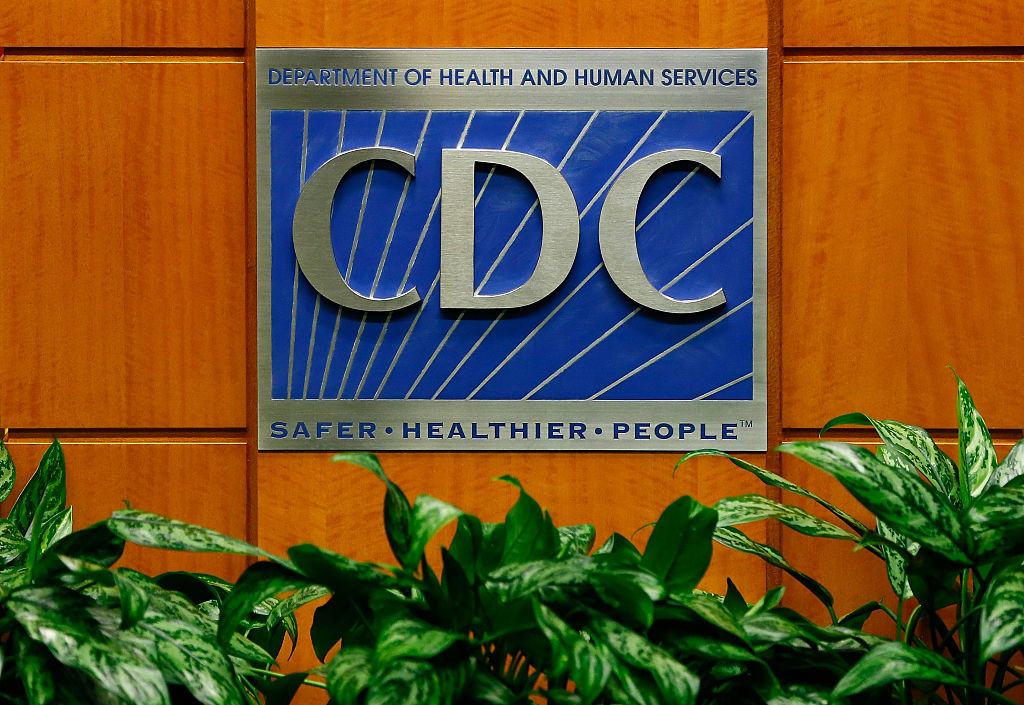The contamination of an apparently unnecessary component in the CDC's coronavirus test kits reportedly caused rollout delay


A free daily email with the biggest news stories of the day – and the best features from TheWeek.com
You are now subscribed
Your newsletter sign-up was successful
Substandard practices reportedly exposed the novel COVID-19 coronavirus test kits manufactured by the Centers for Disease Control and Prevention to contamination. That in turn led to a delay in their rollout earlier this year, The Washington Post confirmed after speaking with scientists familiar with the matter on the condition of anonymity. The Food and Drug Administration also concluded the CDC violated its own laboratory standards in making the kits, per the Post.
It appears the contamination occurred, in part, because the CDC chose to add a complex and unnecessary component to the kits for reasons that remain unknown. The kits included two standard components that focused on separate regions of the virus' genome, while the third component sought to identify a wider family of coronaviruses, which the Post notes may have been an attempt to bolster the kits' reliability and distinguish other coronaviruses from COVID-19. Among the known coronaviruses, COVID-19 is most closely related to the SARS virus, but the two are only 85 percent identical, which is a "massive difference" when it comes to testing, Northern Arizona University geneticist Paul Keim said. In other words, that third component, which was later confirmed to have been the cause behind inconclusive results, was not essential.
Still, it took CDC officials more than a month to remove the contaminated step from the kits, which led to major delays in testing across the United States, likely contributing to the virus' spread.
The Week
Escape your echo chamber. Get the facts behind the news, plus analysis from multiple perspectives.

Sign up for The Week's Free Newsletters
From our morning news briefing to a weekly Good News Newsletter, get the best of The Week delivered directly to your inbox.
From our morning news briefing to a weekly Good News Newsletter, get the best of The Week delivered directly to your inbox.
It's not exactly clear how the component was contaminated, but the Post reports it likely occurred when chemical mixtures were assembled into the kits in the same lab space handling synthetic, or man-made, coronavirus material. Read more at The Washington Post.
A free daily email with the biggest news stories of the day – and the best features from TheWeek.com
Tim is a staff writer at The Week and has contributed to Bedford and Bowery and The New York Transatlantic. He is a graduate of Occidental College and NYU's journalism school. Tim enjoys writing about baseball, Europe, and extinct megafauna. He lives in New York City.
-
 Political cartoons for February 18
Political cartoons for February 18Cartoons Wednesday’s political cartoons include the DOW, human replacement, and more
-
 The best music tours to book in 2026
The best music tours to book in 2026The Week Recommends Must-see live shows to catch this year from Lily Allen to Florence + The Machine
-
 Gisèle Pelicot’s ‘extraordinarily courageous’ memoir is a ‘compelling’ read
Gisèle Pelicot’s ‘extraordinarily courageous’ memoir is a ‘compelling’ readIn the Spotlight A Hymn to Life is a ‘riveting’ account of Pelicot’s ordeal and a ‘rousing feminist manifesto’
-
 A Nipah virus outbreak in India has brought back Covid-era surveillance
A Nipah virus outbreak in India has brought back Covid-era surveillanceUnder the radar The disease can spread through animals and humans
-
 Trump HHS slashes advised child vaccinations
Trump HHS slashes advised child vaccinationsSpeed Read In a widely condemned move, the CDC will now recommend that children get vaccinated against 11 communicable diseases, not 17
-
 Covid-19 mRNA vaccines could help fight cancer
Covid-19 mRNA vaccines could help fight cancerUnder the radar They boost the immune system
-
 FDA OKs generic abortion pill, riling the right
FDA OKs generic abortion pill, riling the rightSpeed Read The drug in question is a generic version of mifepristone, used to carry out two-thirds of US abortions
-
 The new Stratus Covid strain – and why it’s on the rise
The new Stratus Covid strain – and why it’s on the riseThe Explainer ‘No evidence’ new variant is more dangerous or that vaccines won’t work against it, say UK health experts
-
 RFK Jr. vaccine panel advises restricting MMRV shot
RFK Jr. vaccine panel advises restricting MMRV shotSpeed Read The committee voted to restrict access to a childhood vaccine against chickenpox
-
 Texas declares end to measles outbreak
Texas declares end to measles outbreakSpeed Read The vaccine-preventable disease is still spreading in neighboring states, Mexico and Canada
-
 RFK Jr. shuts down mRNA vaccine funding at agency
RFK Jr. shuts down mRNA vaccine funding at agencySpeed Read The decision canceled or modified 22 projects, primarily for work on vaccines and therapeutics for respiratory viruses
